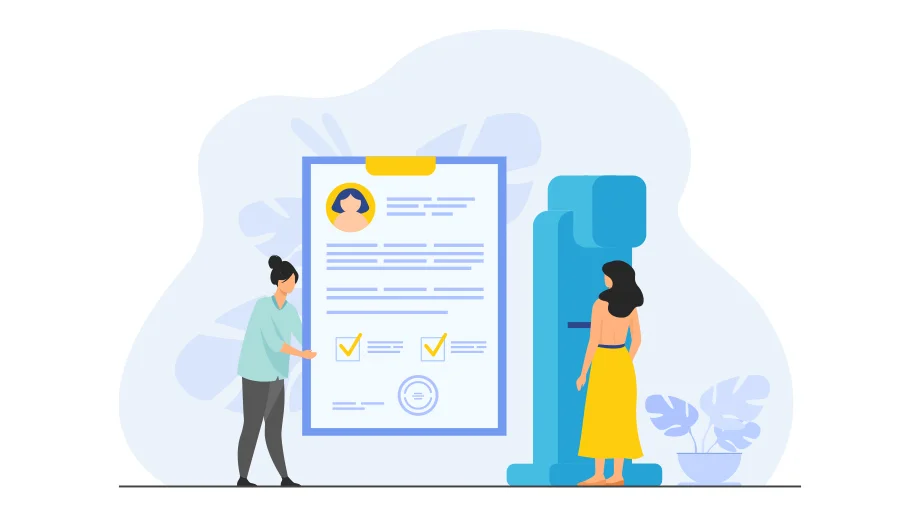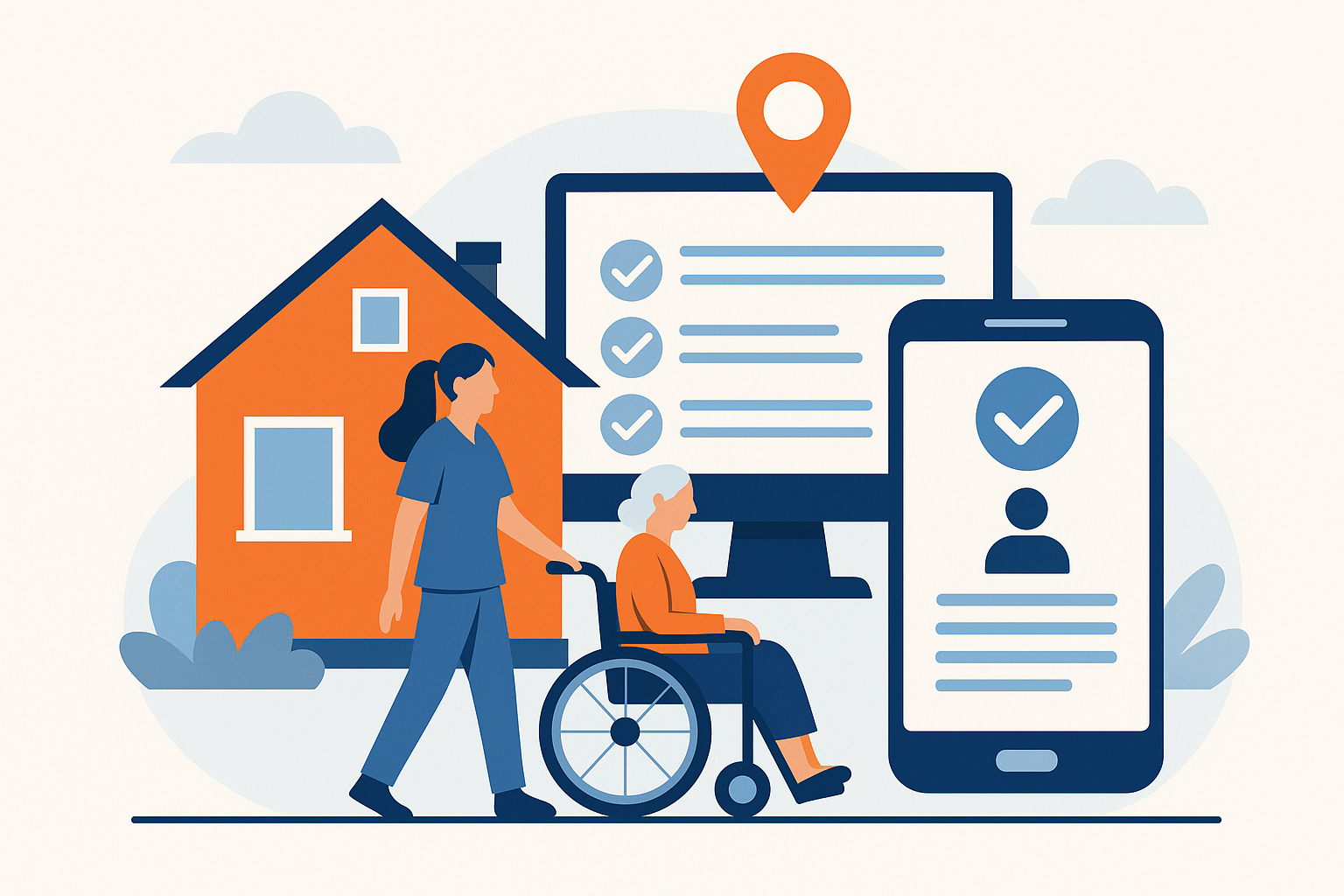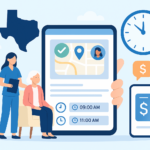Electronic Visit Verification (EVV) is a critical operational safeguard for home healthcare agencies, hospice providers, nurses, and care managers. As mandated by the 21st Century Cures Act, EVV ensures that every Medicaid-funded in-home care service is accurately verified, documented, and reimbursed.
Louisiana EVV follows an open vendor model. With it, providers have flexibility—but also responsibility. This guide breaks down everything you need to know about Louisiana’s EVV requirements, the compliance challenges to watch out for, and how an all-in-one EVV solution like allGeo can help your agency stay ahead.

What is EVV and Why It Matters in Louisiana
EVV is a digital system that verifies home care services including:
- Who received the service
- Who provided the service
- What service was delivered
- Where it was performed (with GPS tracking)
- When the visit started and ended
Without accurate EVV data, your Medicaid claims may be denied or delayed, and your agency could face audits, fines, or even Medicaid disqualification.
⏳Fact: Louisiana enforced full EVV compliance beginning January 1, 2021, for Personal Care Services (PCS) and Home Health Care Services (HHCS).
Louisiana’s EVV Model: Open Vendor + LaSRS Aggregator
Louisiana uses an Open Vendor Model with a centralized state aggregator, LaSRS (Louisiana State Reporting System). This setup gives agencies freedom to:
- Use the free state system (LaSRS)
- Or choose their own third-party EVV provider, as long as it integrates with LaSRS

Who Needs to Comply?
The following providers must use EVV to remain compliant with Louisiana Medicaid:
- Personal care aides
- Home health aides
- Skilled nursing providers
- Therapy service providers
- Hospice care organizations
📉 Risks of Non-Compliance:
- Rejected claims and delayed reimbursements
- Compliance audits and increased oversight
- Potential loss of Medicaid eligibility
Additional LDH Requirements:
- EVV data must be submitted daily to maintain compliance thresholds
- Manual edits must include an IP address log for audit purposes
- Agencies must maintain electronic documentation, such as visit notes and client signatures
Need a solution that handles all this without the headaches?
allGeo: The Smarter EVV Solution for Louisiana Home Care Agencies
At allGeo, we help you simplify EVV compliance with a powerful, easy-to-use platform that supports both mobile and IVR (telephony) check-in.
📲Multimode Clock in/Clock Out
Let caregivers clock in/out using IVR, SMS and even geofencing basis your workflow requirements.
📍 Real-Time GPS Tracking
Capture exact visit locations for accurate billing and audit-proof documentation.
🧾 Digital Care Notes + Signatures
Enable caregivers and nurses to complete visit logs, and obtain digital signatures in the field through smart forms.
📊 EVV Compliance
Ensure compliance by remaining audit-ready and automate your workflow.
✅ Start your free trial with allGeo now and see why Louisiana home care agencies trust us to stay compliant and efficient.

Common EVV Pitfalls (and How to Avoid Them)
1. Data Submission Gaps
Missing or late entries reduce your compliance score. allGeo’s real-time alerts keep you on track. You can send these to caregivers as reminders to ensure continual data update.
2. Manual Record Edits Without Audit Trails
allGeo automatically logs all edits—including timestamp—to meet compliance standards.
3. Device Costs for Caregivers
With allGeo’s flexible mobile + IVR setup, caregivers can use their personal phones or dial in with no extra hardware required.
Final Thoughts: Make Compliance a Strategic Advantage
Meeting Louisiana’s EVV requirements doesn’t have to slow your agency down. With the right tools in place, EVV can become a strategic asset—fueling better documentation, faster claims, and higher quality of care.
📈 Turn EVV into an efficiency engine with allGeo. Schedule a demo to know how.



